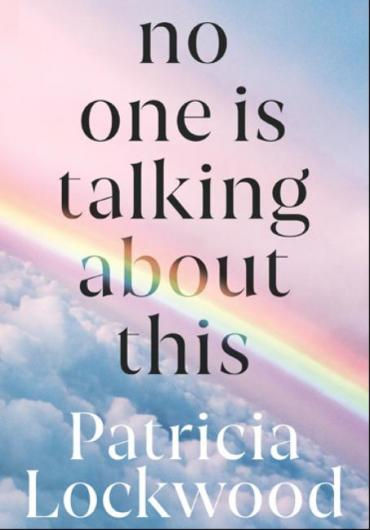No One is Talking About This - Patricia Lockwood - review
- La BiblioFreak
- Sep 21, 2021
- 3 min read

Title: No One Is Talking About This
Author: Patricia Lockwood
Genre: Contemporary fiction/humorous fiction
Pages: 210
My rating: ★★☆☆☆
Other notable works by author: Priestdaddy; Motherland Fatherland Homelandsexuals.
Shortlisted for the Booker Prize 2021
In Patricia Lockwood's debut novel No One is Talking About This, she explores the collective human consciousness, and the effect it has on one mind. Instead of tracking the fluid mental state of one character, we are tracking the internet's collective consciousness.
"But what about the stream-of-a-consciousness that is not entirely your own? One that you participate in, but that also acts upon you?"
More than once she references James Joyce and the literary form he pioneered: the stream of consciousness. No One Is Talking About This appears to be her modern take on Joyce's old form, told through a series of tweet-like paragraphs. But rather than being an ongoing flow, in this novel time moves forward disconnected - we get snippets of what's happening - the main character's reactions to whatever catches her attention in the portal; her reaction to her reaction of what's in the portal; her travels around the world as she gives various talks; her interactions with other portal 'celebrities'.
The novel is divided into two parts. Part 1 takes place mostly in the portal. Life is a jumble of random thoughts and feelings, she seemingly has no control over her thinking mind, it being damaged by excessive exposure to the portal. The main character travels from place to place giving talks about communication in the portal.
Part 2 starts when she receives two earth-shattering texts from her mother. Something is wrong with her pregnant sister, and she needs to return to her childhood home, back in Ohio. The real world collides with the bubble that is the portal and the protagonist has to reckon with what has become her reality.
One of my main complaints is that the novel seems to be written for a very specific type of person: a liberal, female, American tweeter - so basically people like the author herself. I don't feel like the novel is able to be universally appreciated for this very reason. Not being American, or a twitter user myself, I found it hard to appreciate or even understand many of the references and inside jokes. And on top of that, a lot of the content she references already seems so dated, making this book more of a time-capsule, set in early days of Trump's term, than a scathing commentary on modern society.
All in all, the novel felt quite superficial to me. I think it was trying too hard in all aspects: trying too hard to be deep, trying too hard to be funny. Throughout the duration of the book I could feel the presence of the author hovering over me as I read, I could feel both her smugness and her self-consciousness, and I could feel how hard she was trying, and for that reason, I couldn't immerse fully. Funny parts fell flat to me and sad parts failed to elicit anything more than a smidgeon of emotion. The writing style, very poetic, was sometimes beautiful and silky smooth; at other times it seemed clunky and forced, and I could feel my eyes rolling. I think this sentence pretty much sums it up:
"Oh, she loved to yell, loved to be inconsistent, loved to make no sense in the little awestruck hours of the night, which stared up at her as a perfect audience with their equal little heads."
It was an ambitious undertaking that, for me at least, just didn't hit the mark. But I would still give her memoir Priestdaddy a fair try before denouncing her as a twitter poet.



Comments